 Mua tại Shopee
Mua tại Shopee Mua tại Tiki
Mua tại Tiki Mua tại Lazada
Mua tại Lazada Mua tại Tiktok
Mua tại Tiktok
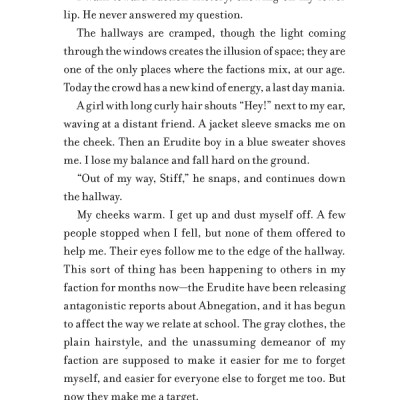
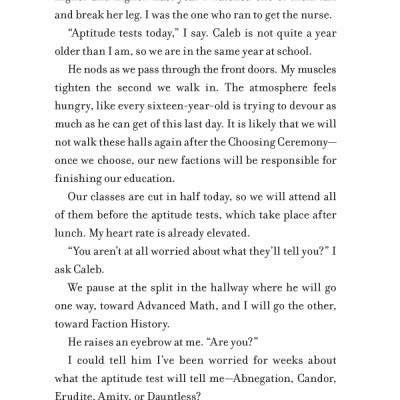
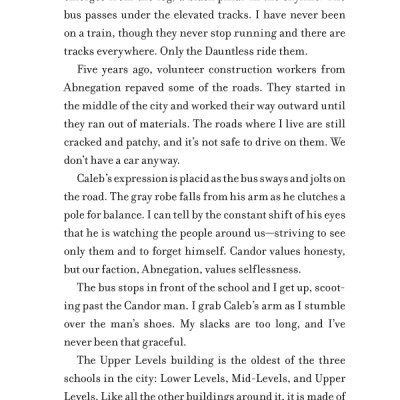
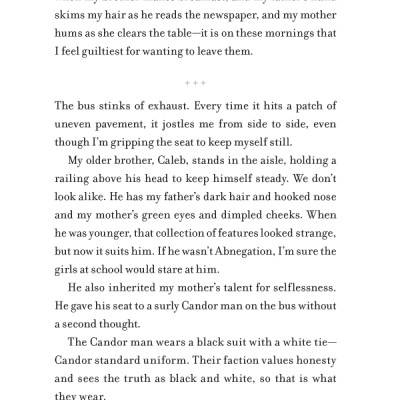
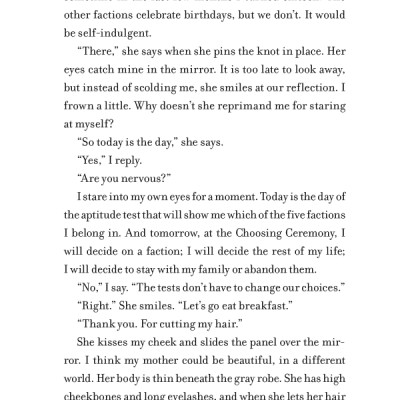
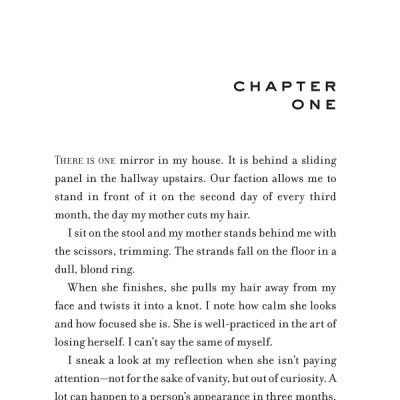
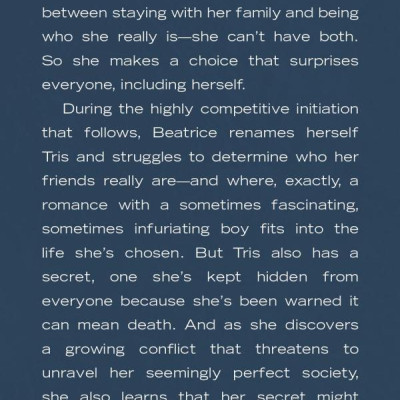
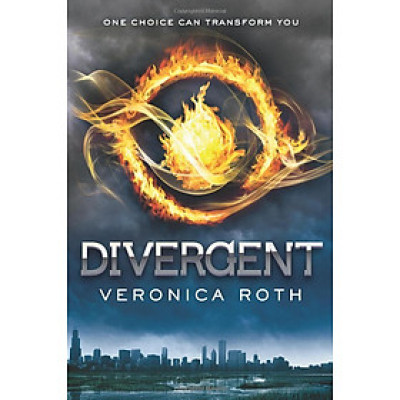
In Beatrice Prior’s dystopian Chicago world, society is divided into five factions, each dedicated to the cultivation of a particular virtue—Candor (the honest), Abnegation (the selfless), Dauntless (the brave), Amity (the peaceful), and Erudite (the intelligent). On an appointed day of every year, all sixteen-year-olds must select the faction to which they will devote the rest of their lives. For Beatrice, the decision is between staying with her family and being who she really is—she can’t have both. So she makes a choice that surprises everyone, including herself.
During the highly competitive initiation that follows, Beatrice renames herself Tris and struggles alongside her fellow initiates to live out the choice they have made. Together they must undergo extreme physical tests of endurance and intense psychological simulations, some with devastating consequences. As initiation transforms them all, Tris must determine who her friends really are—and where, exactly, a romance with a sometimes fascinating, sometimes exasperating boy fits into the life she's chosen. But Tris also has a secret, one she's kept hidden from everyone because she's been warned it can mean death. And as she discovers unrest and growing conflict that threaten to unravel her seemingly perfect society, she also learns that her secret might help her save those she loves . . . or it might destroy her.
Debut author Veronica Roth bursts onto the YA scene with the first book in the Divergent series—dystopian thrillers filled with electrifying decisions, heartbreaking betrayals, stunning consequences, and unexpected romance.
A Q&A with Author Veronica Roth
Q: What advice would you offer to young aspiring writers, who long to live a success story like your own?
Roth: One piece of advice I have is: Want something else more than success. Success is a lovely thing, but your desire to say something, your worth, and your identity shouldn’t rely on it, because it’s not guaranteed and it’s not permanent and it’s not sufficient. So work hard, fall in love with the writing—the characters, the story, the words, the themes—and make sure that you are who you are regardless of your life circumstances. That way, when the good things come, they don’t warp you, and when the bad things hit you, you don’t fall apart.
Q: You’re a young author--is it your current adult perspective or not-so-recent teenage perspective that brought about the factions in the development of this story? Do you think that teens or adults are more likely to fit into categories in our current society?
Roth: Other aspects of my identity have more to do with the factions than my age. The faction system reflects my beliefs about human nature—that we can make even something as well-intentioned as virtue into an idol, or an evil thing. And that virtue as an end unto itself is worthless to us. I did spend a large portion of my adolescence trying to be as “good” as possible so that I could prove my worth to the people around me, to myself, to God, to everyone. It’s only now that I’m a little older that I realize I am unable to be truly “good” and that it’s my reasons for striving after virtue that need adjustment more than my behavior. In a sense, Divergent is me writing through that realization—everyone in Beatrice’s society believes that virtue is the end, the answer. I think that’s a little twisted.
I think we all secretly love and hate categories—love to get a firm hold on our identities, but hate to be confined—and I never loved and hated them more than when I was a teenager. That said: Though we hear a lot about high school cliques, I believe that adults categorize each other just as often, just in subtler ways. It is a dangerous tendency of ours. And it begins in adolescence.
Q: If you could add one more faction to the world within Divergent, what would it be?
Roth: I tried to construct the factions so that they spanned a wide range of virtues. Abnegation, for example, includes five of the traditional “seven heavenly virtues:” chastity, temperance, charity, patience, and humility. That said, it would be interesting to have a faction centered on industriousness, in which diligence and hard work are valued most, and laziness is not allowed. They would be in constant motion, and would probably be happy to take over for the factionless. And hard-working people can certainly take their work too far, as all the factions do with their respective virtues. I’m not sure what they would wear, though. Overalls, probably.
Q: What do you think are the advantages, if any, to the society you’ve created in Divergent?
Roth: All the advantages I see only seem like advantages to me because I live in our current society. For example, the members of their society don’t focus on certain things: race, religion, sexual orientation, political affiliation, etc. I mean, a world in which you look different from the majority and no one minds? That sounds good to me. But when I think about it more, I realize that they’re doing the exact same thing we do, but with different criteria by which to distinguish ourselves from others. Instead of your skin color, it’s the color of your shirt that people assess, or the results of your aptitude test. Same problem, different system.
Q: What book are you currently reading and how has it changed you, if at all?
Roth: I recently finished Imaginary Girls by Nova Ren Suma, which I would call “contemporary with a paranormal twist,” or something to that effect. It’s about a girl whose sister has a powerful kind of magnetism within the confines of a particular town, and how their love for each other breaks some things apart and puts other things back together. It was refreshing to read a young adult book that is about sisterhood instead of romance. It’s one of those books that makes you love a character and then hate a character and then love them again—that shows you that people aren’t all good or all bad, but somewhere in between. Imaginary Girls gave me a lot to think about, and the writing was lovely, which I always love to see.
Amazon.com Review
A Q&A with Author Veronica Roth
Q: What advice would you offer to young aspiring writers, who long to live a success story like your own?
Roth: One piece of advice I have is: Want something else more than success. Success is a lovely thing, but your desire to say something, your worth, and your identity shouldn’t rely on it, because it’s not guaranteed and it’s not permanent and it’s not sufficient. So work hard, fall in love with the writing—the characters, the story, the words, the themes—and make sure that you are who you are regardless of your life circumstances. That way, when the good things come, they don’t warp you, and when the bad things hit you, you don’t fall apart.
Q: You’re a young author--is it your current adult perspective or not-so-recent teenage perspective that brought about the factions in the development of this story? Do you think that teens or adults are more likely to fit into categories in our current society?
Roth: Other aspects of my identity have more to do with the factions than my age. The faction system reflects my beliefs about human nature—that we can make even something as well-intentioned as virtue into an idol, or an evil thing. And that virtue as an end unto itself is worthless to us. I did spend a large portion of my adolescence trying to be as “good” as possible so that I could prove my worth to the people around me, to myself, to God, to everyone. It’s only now that I’m a little older that I realize I am unable to be truly “good” and that it’s my reasons for striving after virtue that need adjustment more than my behavior. In a sense, Divergent is me writing through that realization—everyone in Beatrice’s society believes that virtue is the end, the answer. I think that’s a little twisted.
I think we all secretly love and hate categories—love to get a firm hold on our identities, but hate to be confined—and I never loved and hated them more than when I was a teenager. That said: Though we hear a lot about high school cliques, I believe that adults categorize each other just as often, just in subtler ways. It is a dangerous tendency of ours. And it begins in adolescence.
Q: If you could add one more faction to the world within Divergent, what would it be?
Roth: I tried to construct the factions so that they spanned a wide range of virtues. Abnegation, for example, includes five of the traditional “seven heavenly virtues:” chastity, temperance, charity, patience, and humility. That said, it would be interesting to have a faction centered on industriousness, in which diligence and hard work are valued most, and laziness is not allowed. They would be in constant motion, and would probably be happy to take over for the factionless. And hard-working people can certainly take their work too far, as all the factions do with their respective virtues. I’m not sure what they would wear, though. Overalls, probably.
Q: What do you think are the advantages, if any, to the society you’ve created in Divergent?
Roth: All the advantages I see only seem like advantages to me because I live in our current society. For example, the members of their society don’t focus on certain things: race, religion, sexual orientation, political affiliation, etc. I mean, a world in which you look different from the majority and no one minds? That sounds good to me. But when I think about it more, I realize that they’re doing the exact same thing we do, but with different criteria by which to distinguish ourselves from others. Instead of your skin color, it’s the color of your shirt that people assess, or the results of your aptitude test. Same problem, different system.
Q: What book are you currently reading and how has it changed you, if at all?
Roth: I recently finished Imaginary Girls by Nova Ren Suma, which I would call “contemporary with a paranormal twist,” or something to that effect. It’s about a girl whose sister has a powerful kind of magnetism within the confines of a particular town, and how their love for each other breaks some things apart and puts other things back together. It was refreshing to read a young adult book that is about sisterhood instead of romance. It’s one of those books that makes you love a character and then hate a character and then love them again—that shows you that people aren’t all good or all bad, but somewhere in between. Imaginary Girls gave me a lot to think about, and the writing was lovely, which I always love to see.
Review
“A memorable, unpredictable journey from which it is nearly impossible to turn away.”— (Publishers Weekly (starred review) )
“You’ll be up all night with Divergent, a brainy thrill-ride of a novel.” (BookPage )
 Mua tại Shopee
Mua tại Shopee Mua tại Tiki
Mua tại Tiki Mua tại Lazada
Mua tại Lazada Mua tại Tiktok
Mua tại Tiktok
Tác giả: J K Rowling Nhà xuất bản: Bloomsbury Năm xuất bản: 2017 Loại bìa: Bìa mềm Số trang: 432 Trang Ngôn ngữ: Tiếng Anh ISBN: 9781526620309 This gorgeous new paperback edition of the
Tác giả: Onjali Q. Raúf Nhà xuất bản: Orion Children's Books Năm xuất bản: 2023 Loại bìa: Bìa cứng Số trang: 256 Trang Ngôn ngữ: Tiếng Anh ISBN: 9781510111066 Kích thước: 19.4 x 2.2 x
Growing Home An instantNew York Timesbestseller! “A meditative, charming t.” —School Library Journal(starred review) An unlikely team of talkative plants, a curious spider, and a grumpy goldfish use their newfound magical abilities to defend their
Tác giả: Jacqueline Wilson Nhà xuất bản: Hodder Children's Books Năm xuất bản: 2023 Loại bìa: Bìa cứng Số trang: 336 Trang Ngôn ngữ: Tiếng Anh ISBN: 9781444971545 Kích thước: 16 x 3.4 x 23.8
THÔNG TIN SÁCH Loại bìa: Bìa mềm Số trang: 819 trang Kích thước: 129 x 198 x 43mm Dark times have come to Hogwarts. After the Dementors' attack on his cousin Dudley, Harry Potter
Diary Of A Wimpy Kid - Partypooper (Book 20) International bestselling author Jeff Kinney serves up heaps of laughs in the 20th book in the Diary of a Wimpy Kid series.
The Misadventures Of Max Crumbly - Masters Of Mischief From #1New York Timesbestselling Dork Diaries author Rachel Renée Russell comes the third book in a series about Max Crumbly and his daily ups and downs
Tác giả: Ian Mark Nhà xuất bản: Farshore Năm xuất bản: 2022 Loại bìa: Bìa mềm Số trang: 304 Trang Ngôn ngữ: Tiếng Anh ISBN: 9780755504367 Kích thước: 12.9 x 2.3 x 19.8 cm ---------------------------------
Tác giả: Kate DiCamillo Nhà xuất bản: Walker Books Năm xuất bản: 2015 Loại bìa: Bìa mềm Số trang: 271 Trang Ngôn ngữ: Tiếng Anh ISBN: 9781406368529 Một con chuột dũng cảm, một con
THÔNG TIN SÁCH Loại bìa: Bìa mềm Số trang: 352 trang Kích thước: 129 x 198 x 30mm Harry Potter has never even heard of Hogwarts when the letters start dropping on the doormat
A Noob's Diary Of An 8-Bit Warrior The fourth volume in the Minecraft warrior adventure series follows Runt, Blurp, and friends on their quest to the End to face the Enderdragon. Cube Kid's bestselling characters
Catching Fire: 2/3 (Hunger Games Trilogy) The second book in the ground-breaking HUNGER GAMES trilogy. After winning the brutal Hunger Games, Katniss and Peeta return to their district, hoping for a peaceful future. But
Tác giả: Tony Bradman Nhà xuất bản: Walker Books Năm xuất bản: 2022 Loại bìa: Bìa mềm Số trang: 144 Trang Ngôn ngữ: Tiếng Anh ISBN: 9781406395037 Kích thước: 12.9 x 1 x 19.8 cm
Tác giả: Lewis Carroll Nhà xuất bản: Macmillan Children's Books Năm xuất bản: 2015 Loại bìa: Bìa mềm Số trang: 208 Trang Ngôn ngữ: Tiếng Anh ISBN: 9781447279990 Kích thước: 13 x 2.5 x 19.7
Tác giả: Edwina Wyatt Nhà xuất bản: Walker Books Năm xuất bản: 2021 Loại bìa: Bìa mềm Số trang: 107 Trang Ngôn ngữ: Tiếng Anh ISBN: 9781529502947 Kích thước: 12.8 x 2.8 x 19.8 cm
The Tower At The End Of Time Nine and the other inhabitants must find a way to stop their magical house from uncontrollably bouncing from world to world in this wacky and whimsical follow-up to
The BFG ‘We is in Dream Country,’ the BFG said. ‘This is where all dreams is beginning.’ This beautiful edition of The BFG, part of The Roald Dahl Classic Collection, features official archive material from
Leah Vs. Art - Team Awkward Leah’s ambitious extracurricular plans cause trouble in this second book in the Team Awkward middle grade series that’s The Baby-Sitters Club meets Dork Diaries. How organized, driven Leah was
Diary Of A Cricket (Tái Bản 2024) “Dế mèn phiêu lưu ký” là truyện dài của nhà văn Tô Hoài kể về cuộc phiêu lưu của chú Dế Mèn cùng các bạn bè. Trên đường
Kazu Kibuishi's thrilling, New York Times bestselling series continues! Emily and her friends think they'll find the help they need in Cielis, but something isn't right. Streets that were once busy are deserted, and the
It used to be that Belly counted the days until summer, until she was back at Cousins Beach with Conrad and Jeremiah. But not this year. Not after Susannah got sick again and Conrad stopped
Heir Growing up in the Kegari slums, Aiz has seen her share of suffering. An old tragedy fuels her need for vengeance, but it is love of her people that propels her. Until one hot-headed
Dog Man #7: For Whom The Ball Rolls Petey learns what it means to do good in the seventh Dog Man book from worldwide bestselling author and artist Dav Pilkey. The Supa Buddies
Laege Question and Answer Flap Book - Animals Have you ever wondered why flamingoes are pink and what makes a rhino charge? Lift the flaps in this colourful question and answer book to discover many
Tác giả: Lewis Carroll Nhà xuất bản: Macmillan Năm xuất bản: 2019 Công ty phát hành: Macmillan Số Trang: 225 Loại bìa: Bìa mềm Ngôn ngữ: Tiếng Anh ISBN: 9781529006858 Trở lại Xứ sở thần tiên của
Star Wars Jedi Academy Series 7 Books Collection Set (Books 1 - 7) by Jeffrey Brown: Jedi Academy: Perfect for fans of Star Wars or comic-book fiction such as Captain Underpants. Story and illustration are
THÔNG TIN SÁCH Loại bìa: Bìa mềm Số trang: 560 trang Kích thước: 129 x 198 x 43mm 'Will you, Severus, watch over my son Draco as he attempts to fulfil the Dark Lord's
Don't miss this original canon story set in the world of the Emmy Award-winning Netflix animated series The Dragon Prince, with story by the creators of the series and of the New York Times bestselling Through the Moon (The Dragon
The Complete Calvin And Hobbes Calvin and Hobbesis unquestionably one of the most popular comic strips of all time. The imaginative world of a boy and his real-only-to-him tiger was first syndicated in 1985 and
Dork Diaries: Tales from a Not-So-Best Friend Forever Nikki Maxwell's summer is packed with drama in this fourteenth installment of the #1 New York Times bestselling Dork Diaries series! Nikki and her bandmates are looking
Roald Dahl Classic: The BFG "A true genius . . . Roald Dahl is my hero" David Walliams Every night, when the world is sleeping, big gruesome giants guzzle up whoppsy-whiffling human beans. And there's
Tác giả: Roald Dahl Nhà xuất bản: Puffin Books Năm xuất bản: 2007 Công ty phát hành: Puffin Books Loại bìa: Bìa mềm Số trang: 224 Trang Ngôn ngữ: Tiếng Anh ISBN: 9780142410387 Từ tác
Tác giả: David Walliams Nhà xuất bản: HarperCollins Children’s Books Năm xuất bản: 2023 Công ty phát hành: HarperCollins Children’s Books Loại bìa: Bìa mềm Số trang: 288 Trang Ngôn ngữ: Tiếng Anh ISBN: 9780008621896 Phần
Tác giả: Roald Dahl Nhà xuất bản: Puffin Năm xuất bản: 2007 Công ty phát hành: Puffin Loại bìa: Bìa mềm Số trang: 112 Trang Ngôn ngữ: Tiếng Anh ISBN: 9780241558485 -------------------------------- George Kranky's grandma
Dog Man: Fetch-22 HALF A MILLION DOG MAN BOOKS SOLD IN THE UK! Petey the Cat is out of jail, and he has a brand-new lease on life. While Petey's reevaluated what matters most, Li'l
Quy cách: bìa mềm Ngôn ngữ: tiếng Anh #### The Eighth Story. Nineteen Years Later. Based on an original new story by J.K. Rowling, John Tiffany and Jack Thorne, a play by Jack Thorne. The
The Harry Potter Wizarding Almanac The #1 New York Times Bestseller and instant Sunday Times Bestseller The only official companion to the Harry Potter stories – the ultimate compendium of wizarding lists, charts, maps and
An irresistible romp through the history of magic, from alchemy to unicorns, ancient witchcraft to Harry's Hogwarts – packed with unseen sketches and manuscript pages from J.K. Rowling, magical illustrations from Jim Kay and weird,
THE NO 1 NEW YORK TIMES BESTSELLER AND NEWBERY MEDAL WINNER The Newbery Medal winner from the author of the highly acclaimed novel The Witch's Boy. 'This beautifully written, darkly funny coming-of-age story
Quy cách: bìa mềm Ngôn ngữ: tiếng Anh #### SIX hugely hilarious and spectacularly moving novels from bestselling, critically acclaimed author David Walliams, in one INCREDIBLE box set! THE MIDNIGHT GANG: When Tom gets hit
The Hunger Games (Deluxe Edition) A stunning deluxe edition of The Hunger Games, the international bestseller! This paperback edition features gorgeous sprayed edges with stenciled artwork and an iconic new cover. This is a breathtaking
The Dragon Rebellion has begun, bringing the Vikings' darkest hour upon them. Hiccup has become an outcast, but that won't stop him from going on the most harrowing and important quest of his life. He
Le jour de ses onze ans, Harry Potter, un orphelin élevé par un oncle et une tante qui le détestent, voit son existence bouleversée. Un géant vient le chercher pour l'emmener à Poudlard, une école
A hilarious, touching and extraordinary new fable from the author of The Boy in the Dress and Mr Stink. Joe has a lot of reasons to be happy. About a billion of them, in fact.
He regularly moves from small town to small town. He changes his name and identity. He does not put down roots. He cannot tell anyone who or what he really is. If he stops moving
Nikki Maxwell’s adventures continue in the twelfth installment in the blockbuster #1 New York Times bestselling Dork Diaries series! In Nikki Maxwell’s newest diary, it’s the countdown to the end of the school year, and
Box Set Hunger Games (Deluxe Edition With Stenciled Edges) (4 Books) All four of the Hunger Games paperbacks in a stunning deluxe box set that features sprayed edges with stenciled artwork, as well as all-new
Quy cách: Bìa mềm Ngôn ngữ: tiếng Anh #### From million-copy bestselling author David Walliams comes a laugh-out-loud animal space adventure. Chump the chimpanzee was always being silly. He would: - make rude noises from
In this riveting debut, a telepathic girl must figure out why she is the key to her brand-new world--before the wrong person finds the answer first. Twelve-year-old Sophie has never quite fit into her life.
THÔNG TIN SÁCH Loại bìa: Bìa mềm Số trang: 640 trang Kích thước: 129 x 198 x 43mm 'It matters not what someone is born, but what they grow to be' Albus Dumbledore When the
Every great story has a great beginning - and this is where Harry Potter's extraordinary, magical adventure starts. From the moment Harry Potter is deposited on the doorstep of number four, Privet Drive, Little Whinging,
Bella?' Edward's soft voice came from behind me. I turned to see him spring lightly up the porch steps, his hair windblown from running. He pulled me into his arms at once, and kissed me
Đây là một món quà kỳ diệu cho nhiều thế hệ người hâm mộ của bộ tiểu thuyết nhiệm màu này! Những trang sách minh họa rực rỡ sẽ đưa bạn vút bay vào thế
Please Read Notes: Brand New, International Softcover Edition, Printed in black and white pages, minor self wear on the cover or pages, Sale restriction may be printed on the book, but Book name, contents, and
The Clockwork Sparrow meets Downton Abbey It's a bitterly cold winter in Yorke and Rose Raventhorpe and her butler Heddsworth are stuck with Rose's unpleasant cousin Herbert, and his equally horrible butler, Bixby. When an orphan boy
Une rentrée fracassante en voiture volante, une étrange malédiction qui s'abbat sur les élèves... cette nouvelle année à l'école des sorciers ne s'annonce pas de tout repos ! Entre les cours de potions magiques, les
THÔNG TIN SÁCH Loại bìa: Bìa mềm Số trang: 352 trang Kích thước: 192 x 227 x 30mm Jim Kay's dazzling depiction of J.K. Rowling's wizarding world has won legions of fans since the first
Divergent Series Boxed Set (Books 1-3) Divergent: Sixteen-year-old Tris has been forced to make a terrible choice. In a divided society where everyone must conform, Tris does not fit. So she ventures out, alone, determined
Percy Jackson And The Titan's Curse: The Graphic Novel by Riordan, Rick
Enter the Grishaverse with book three of the Shadow and Bone Trilogy by New York author Leigh Bardugo. Perfect for fans of Laini Taylor and Sarah J. Maas. Now with a stunning new cover and
 Mua tại Shopee
Mua tại Shopee Mua tại Tiki
Mua tại Tiki Mua tại Lazada
Mua tại Lazada Mua tại Tiktok
Mua tại Tiktok







 Mua tại Shopee
Mua tại Shopee Mua tại Tiki
Mua tại Tiki Mua tại Lazada
Mua tại Lazada Mua tại Tiktok
Mua tại Tiktok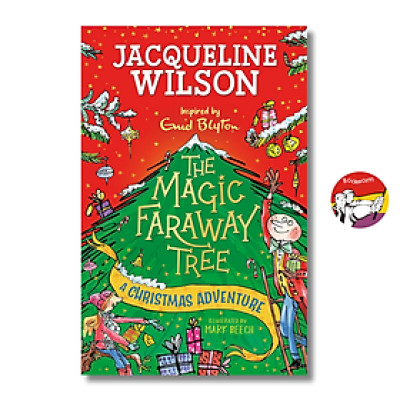 Sách - A Christmas Adventure: The Magic Faraway Tree by Jacqueline Wilson | Christmas Childrens Book
Sách - A Christmas Adventure: The Magic Faraway Tree by Jacqueline Wilson | Christmas Childrens Book 
 Sách - Hogwarts Library Collection by J.K Rowling. Sách thiếu nhi tiếng Anh/ Children Book/ English
Sách - Hogwarts Library Collection by J.K Rowling. Sách thiếu nhi tiếng Anh/ Children Book/ English 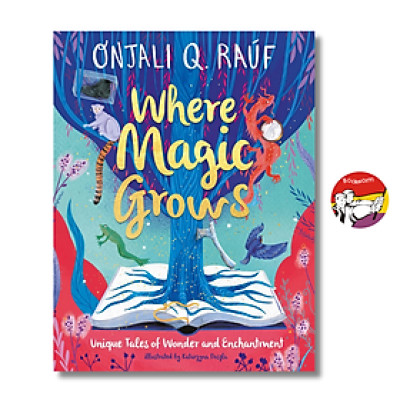 Sách - Where Magic Grows: Unique Tales of Wonder & Enchantment by Onjali Q. Raúf | Children Book
Sách - Where Magic Grows: Unique Tales of Wonder & Enchantment by Onjali Q. Raúf | Children Book 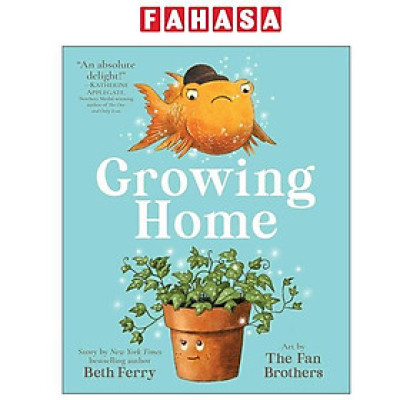 Sách ngoại văn: Growing Home (Hardback)
Sách ngoại văn: Growing Home (Hardback) 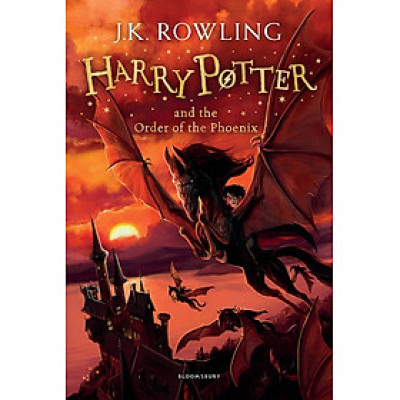 Tiểu thuyết thiếu niên tiếng Anh: Harry Potter và Hội Phượng Hoàng
Tiểu thuyết thiếu niên tiếng Anh: Harry Potter và Hội Phượng Hoàng 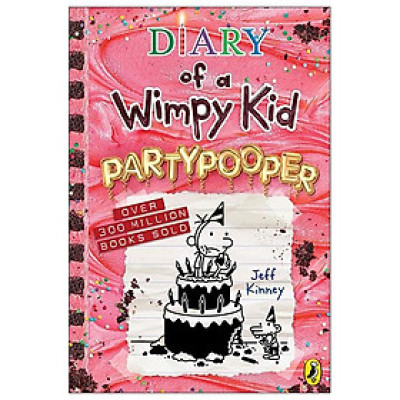 Sách ngoại văn: Diary Of A Wimpy Kid - Partypooper (Book 20)
Sách ngoại văn: Diary Of A Wimpy Kid - Partypooper (Book 20)  Sách ngoại văn: The Misadventures Of Max Crumbly - Masters Of Mischief (Hardback)
Sách ngoại văn: The Misadventures Of Max Crumbly - Masters Of Mischief (Hardback) 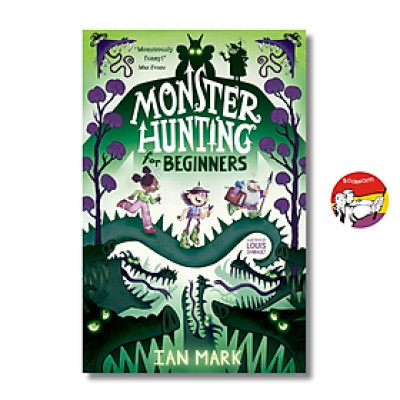 Sách - Monster Hunting for Beginners by Ian Mark | English Children's Fantasy Fiction Novel
Sách - Monster Hunting for Beginners by Ian Mark | English Children's Fantasy Fiction Novel 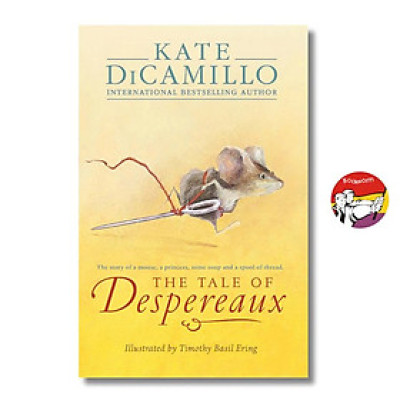 Sách - The Tale of Despereaux by Kate DiCamillo | Fantasy Fiction for Childrens / Ngoại văn
Sách - The Tale of Despereaux by Kate DiCamillo | Fantasy Fiction for Childrens / Ngoại văn 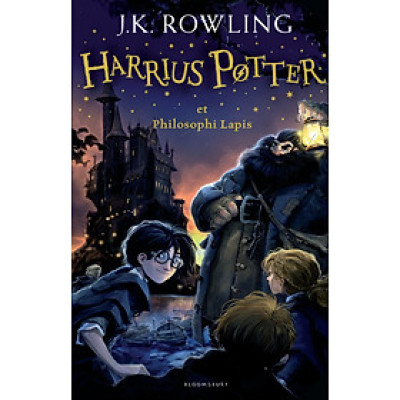 Tiểu thuyết thiếu niên tiếng Anh: Harry Potter and the Philosopher's Stone, Children's Paperback
Tiểu thuyết thiếu niên tiếng Anh: Harry Potter and the Philosopher's Stone, Children's Paperback 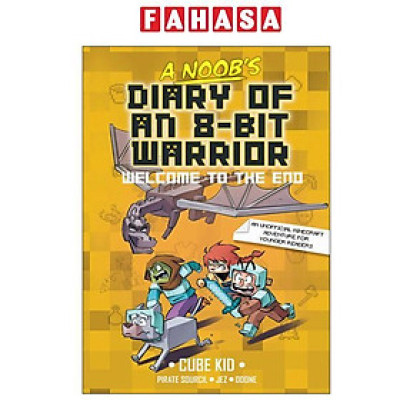 Sách ngoại văn: A Noob's Diary Of An 8-Bit Warrior
Sách ngoại văn: A Noob's Diary Of An 8-Bit Warrior 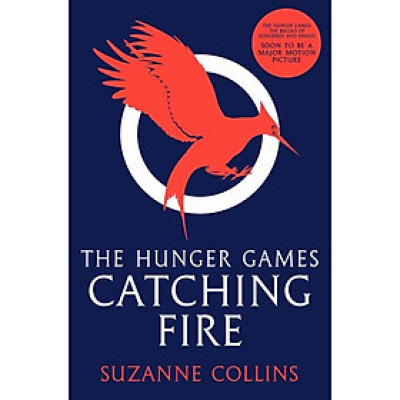 The Hunger Games 2. Catching Fire
The Hunger Games 2. Catching Fire 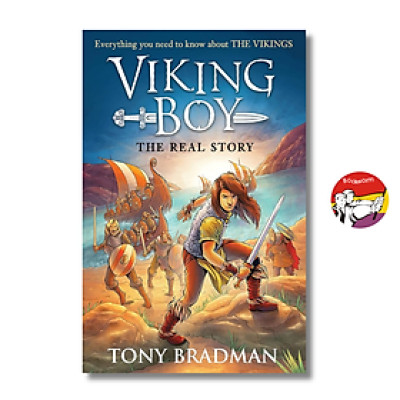 Sách - Viking Boy: the Real Story: Everything you need to know about the Vikings by Tony Bradman
Sách - Viking Boy: the Real Story: Everything you need to know about the Vikings by Tony Bradman 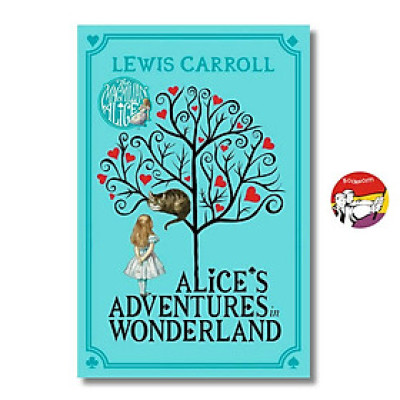 Sách - Alice's Adventures in Wonderland by Lewis Carroll | Classics Children's Fiction Novel
Sách - Alice's Adventures in Wonderland by Lewis Carroll | Classics Children's Fiction Novel 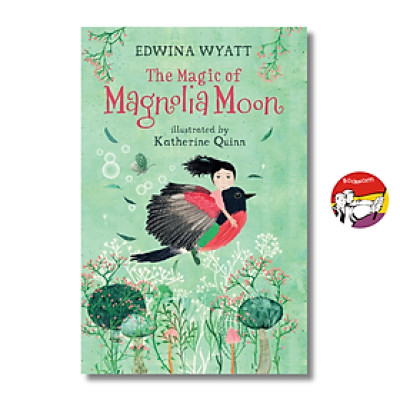 Sách - The Magic of Magnolia Moon by Edwina Wyatt | Children English Fiction / Ngoại văn Nhập khẩu
Sách - The Magic of Magnolia Moon by Edwina Wyatt | Children English Fiction / Ngoại văn Nhập khẩu 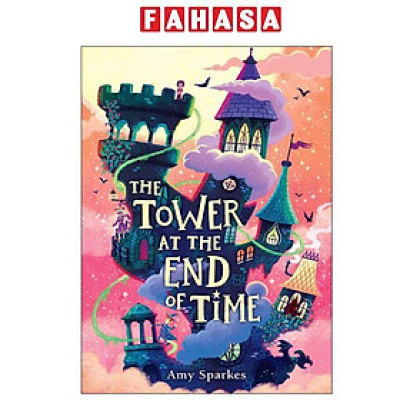 Sách ngoại văn: The Tower At The End Of Time
Sách ngoại văn: The Tower At The End Of Time 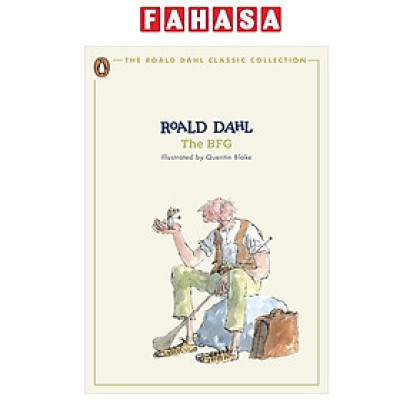 Sách ngoại văn: The BFG
Sách ngoại văn: The BFG 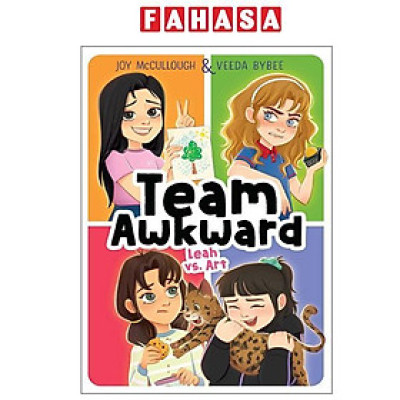 Sách ngoại văn: Leah Vs. Art - Team Awkward
Sách ngoại văn: Leah Vs. Art - Team Awkward  Sách ngoại văn: Diary Of A Cricket (Tái Bản 2024)
Sách ngoại văn: Diary Of A Cricket (Tái Bản 2024)  Amulet Book Four: The Last Council
Amulet Book Four: The Last Council 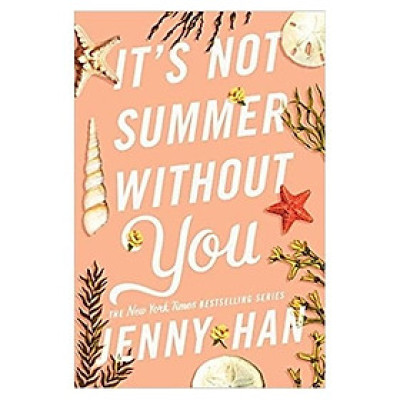 It's Not Summer Without You
It's Not Summer Without You  Sách ngoại văn: Heir
Sách ngoại văn: Heir  Dog Man #7: For Whom The Ball Rolls
Dog Man #7: For Whom The Ball Rolls 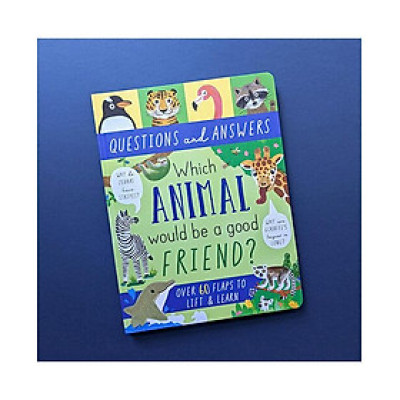 Laege Question and Answer Flap Book - Animals by Rachel Moss
Laege Question and Answer Flap Book - Animals by Rachel Moss 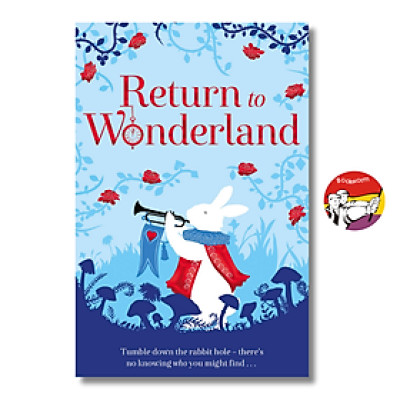 Sách - Return to Wonderland by Lewis Carroll | Childrens Fiction / Fantasy / Adventure in English
Sách - Return to Wonderland by Lewis Carroll | Childrens Fiction / Fantasy / Adventure in English 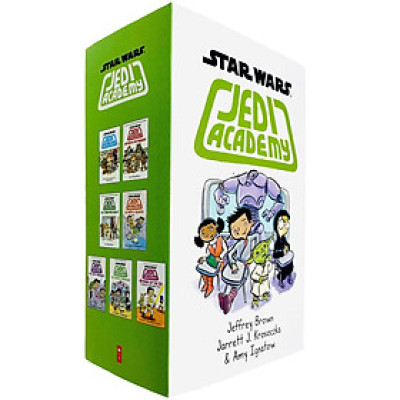 Truyện đọc tiếng Anh - Star Wars Jedi Academy Collection
Truyện đọc tiếng Anh - Star Wars Jedi Academy Collection 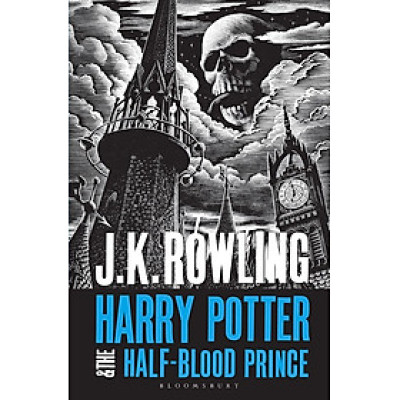 Tiểu thuyết thiếu nhiên tiếng Anh: Harry Potter and the Half-Blood Prince - Adult Paperback
Tiểu thuyết thiếu nhiên tiếng Anh: Harry Potter and the Half-Blood Prince - Adult Paperback 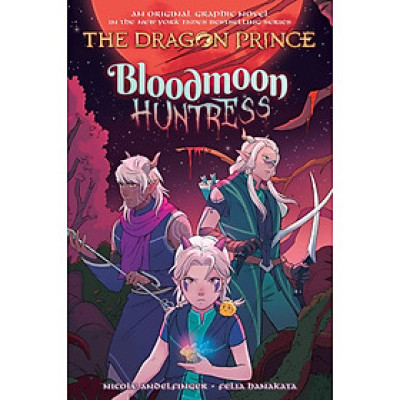 Bloodmoon Huntress (The Dragon Prince Graphic Novel 2)
Bloodmoon Huntress (The Dragon Prince Graphic Novel 2)  The Complete Calvin And Hobbes
The Complete Calvin And Hobbes  Dork Diaries: Tales from a Not-So-Best Friend Forever
Dork Diaries: Tales from a Not-So-Best Friend Forever 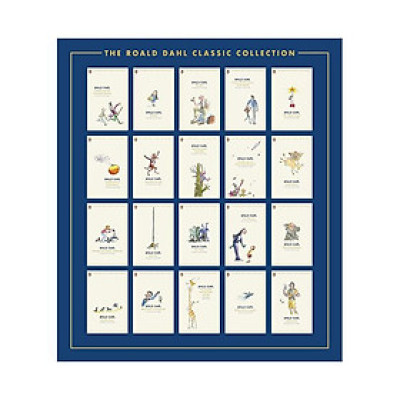 Roald Dahl Classic: The BFG
Roald Dahl Classic: The BFG 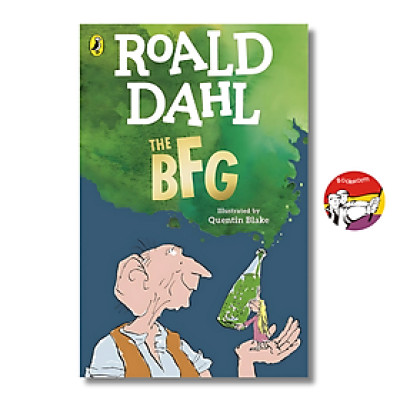 Sách - The BFG by Roald Dahl | Fantasy / English Childrens Fiction / Sách Ngoại văn Trẻ em
Sách - The BFG by Roald Dahl | Fantasy / English Childrens Fiction / Sách Ngoại văn Trẻ em 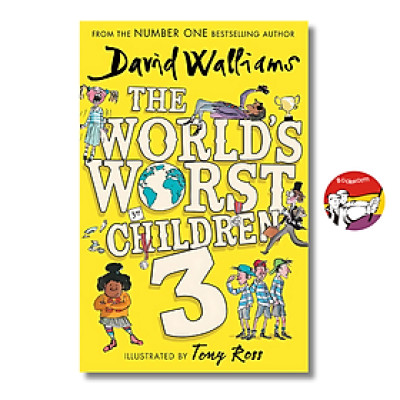 Sách - The World Worst Children 3 by David Walliams | Childrens Short Stories / Humor / Ngoại văn Trẻ em
Sách - The World Worst Children 3 by David Walliams | Childrens Short Stories / Humor / Ngoại văn Trẻ em 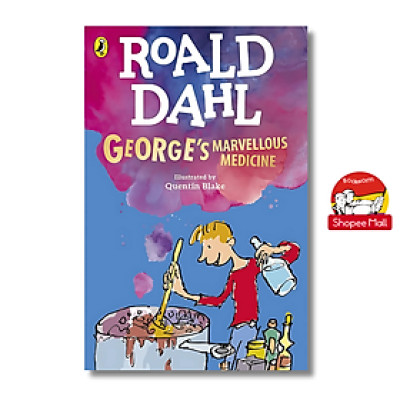 Sách - George's Marvelous Medicine by Roald Dahl | English Childrens Novel / Ngoại văn Trẻ em
Sách - George's Marvelous Medicine by Roald Dahl | English Childrens Novel / Ngoại văn Trẻ em 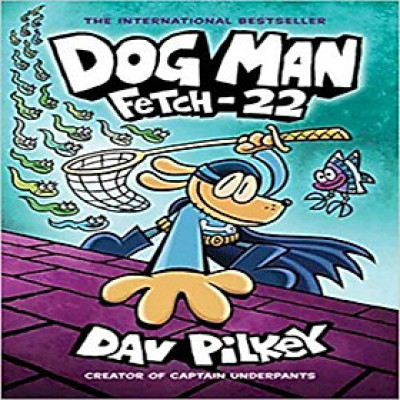 Dog Man #8: Fetch-22
Dog Man #8: Fetch-22 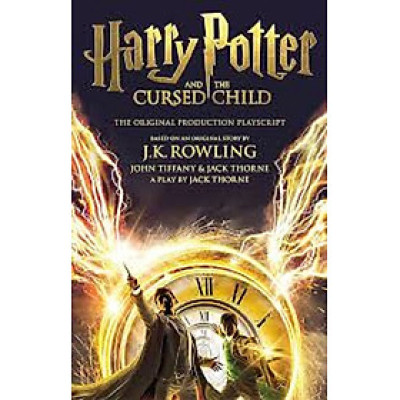 Harry Potter and the Cursed Child
Harry Potter and the Cursed Child 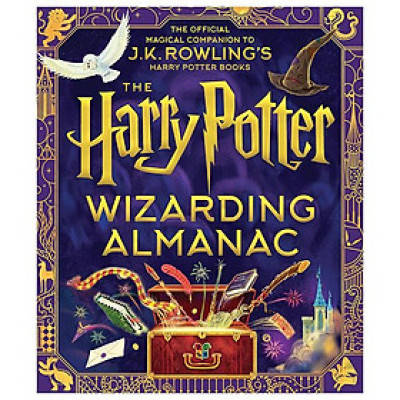 Sách ngoại văn: The Harry Potter Wizarding Almanac
Sách ngoại văn: The Harry Potter Wizarding Almanac 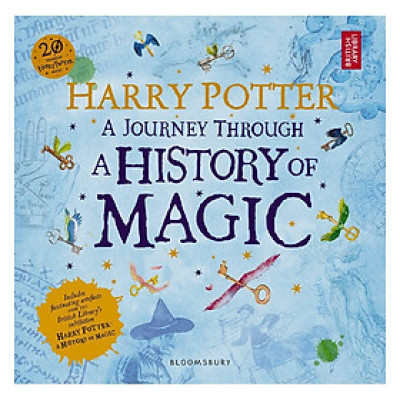 Harry Potter: A Journey Through A History of Magic (English Book)
Harry Potter: A Journey Through A History of Magic (English Book) 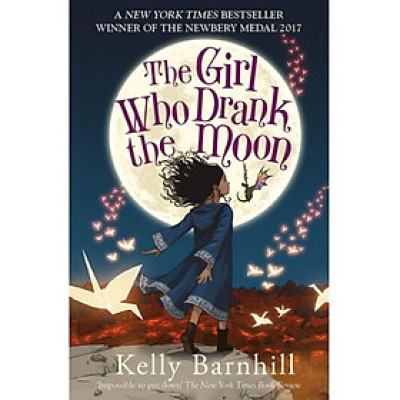 The Girl Who Drank The Moon
The Girl Who Drank The Moon  THE WORLD OF DAVID WALLIAMS: THE AMAZING ADVENTURES BOX SET: Gangsta Granny; Ratburger; Demon Dentist; Awful Auntie; Grandpa’s Great Escape; The Midnight Gang
THE WORLD OF DAVID WALLIAMS: THE AMAZING ADVENTURES BOX SET: Gangsta Granny; Ratburger; Demon Dentist; Awful Auntie; Grandpa’s Great Escape; The Midnight Gang  Sách ngoại văn: The Hunger Games (Deluxe Edition)
Sách ngoại văn: The Hunger Games (Deluxe Edition) 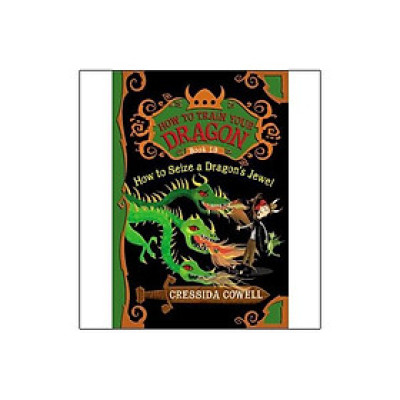 How to Train Your Dragon: How to Seize a Dragon's Jewel (Book 10)
How to Train Your Dragon: How to Seize a Dragon's Jewel (Book 10) 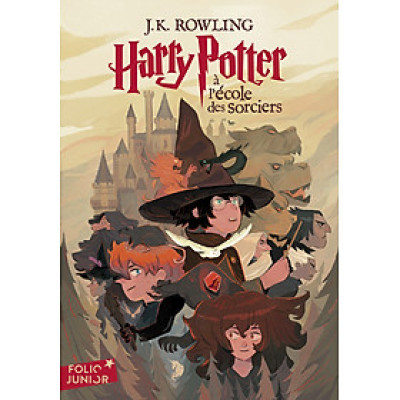 HARRY POTTER - TOME 1 - HARRY POTTER A L’ECOLE DES SORCIERS
HARRY POTTER - TOME 1 - HARRY POTTER A L’ECOLE DES SORCIERS 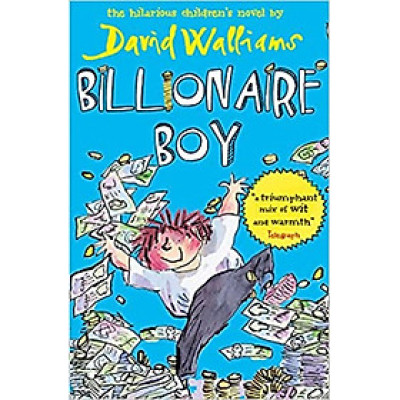 Billionaire Boy
Billionaire Boy 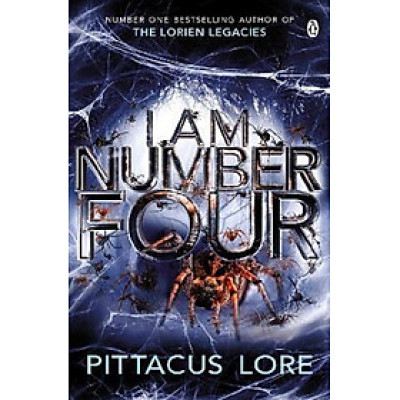 I Am Number Four
I Am Number Four  Dork Diaries 12: Tales From A Not-So-Secret Crush Catastrophe
Dork Diaries 12: Tales From A Not-So-Secret Crush Catastrophe  Sách ngoại văn: Box Set Hunger Games (Deluxe Edition With Stenciled Edges) (4 Books)
Sách ngoại văn: Box Set Hunger Games (Deluxe Edition With Stenciled Edges) (4 Books)  ASTROCHIMP
ASTROCHIMP 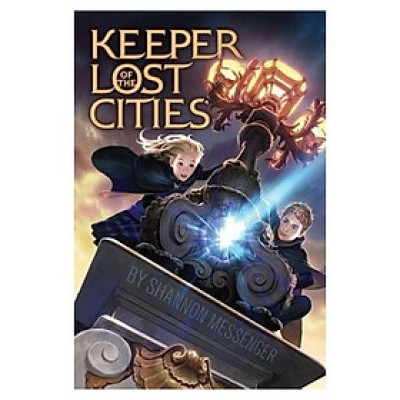 Keeper of the Lost Cities
Keeper of the Lost Cities 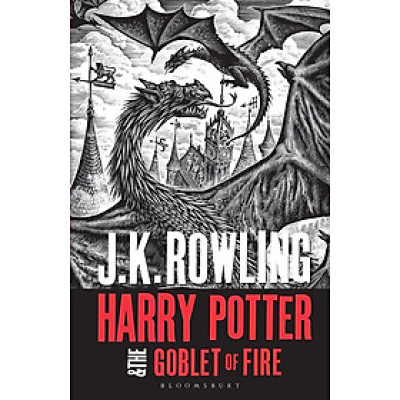 Tiểu thuyết thiếu nhiên tiếng Anh: Harry Potter and the Goblet of Fire - Adult Paperback
Tiểu thuyết thiếu nhiên tiếng Anh: Harry Potter and the Goblet of Fire - Adult Paperback  Harry Potter: The Magical Adventure Begins (English Book)
Harry Potter: The Magical Adventure Begins (English Book) 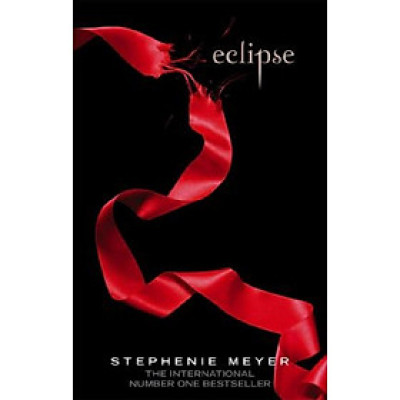 Eclipse - TIẾNG ANH
Eclipse - TIẾNG ANH 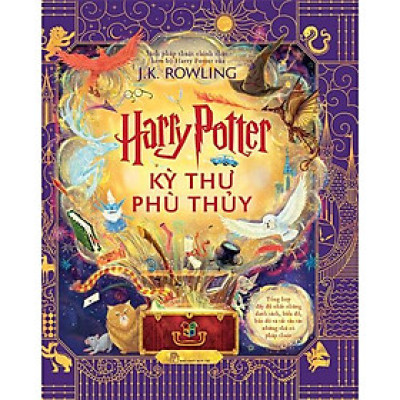 Harry Potter: Kỳ Thư Phù Thủy
Harry Potter: Kỳ Thư Phù Thủy ![Sách Ngoại Văn - Harry Potter and the Chamber of Secrets [Paperback] by J. K. Rowling (Author)](/datafiles/2025-01/thumbs/6efead74491c2fc96de8d35f6f2b0041.jpeg) Sách Ngoại Văn - Harry Potter and the Chamber of Secrets [Paperback] by J. K. Rowling (Author)
Sách Ngoại Văn - Harry Potter and the Chamber of Secrets [Paperback] by J. K. Rowling (Author) 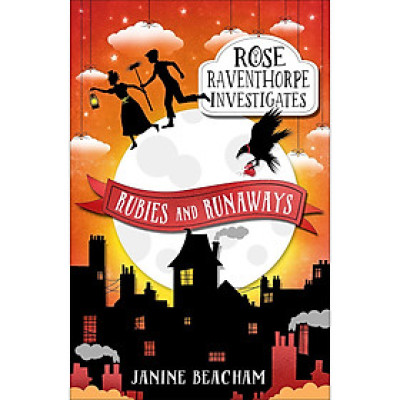 Rose Raventhorpe Investigates: Rubies And Runaways
Rose Raventhorpe Investigates: Rubies And Runaways 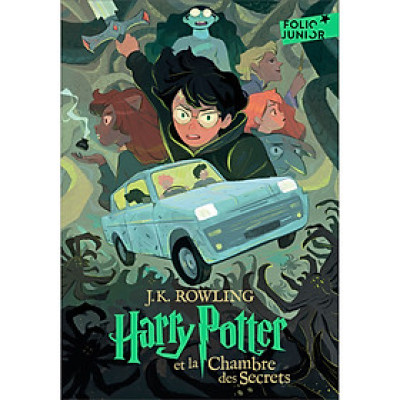 HARRY POTTER - TOME 2 - HARRY POTTER ET LA CHAMBRE DES SECRETS
HARRY POTTER - TOME 2 - HARRY POTTER ET LA CHAMBRE DES SECRETS 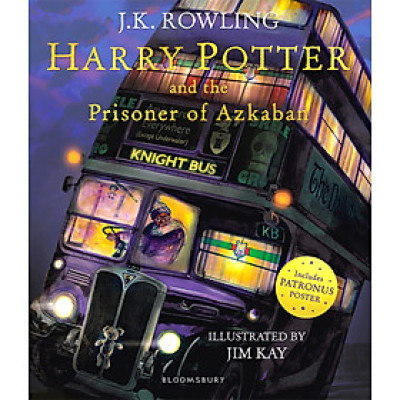 Tiểu thuyết thiếu nhiên tiếng Anh: Harry Potter and the Prisoner of Azkaban - Illustrated Paperback (Jim Kay)
Tiểu thuyết thiếu nhiên tiếng Anh: Harry Potter and the Prisoner of Azkaban - Illustrated Paperback (Jim Kay)  Divergent Series Boxed Set (Books 1-3)
Divergent Series Boxed Set (Books 1-3) 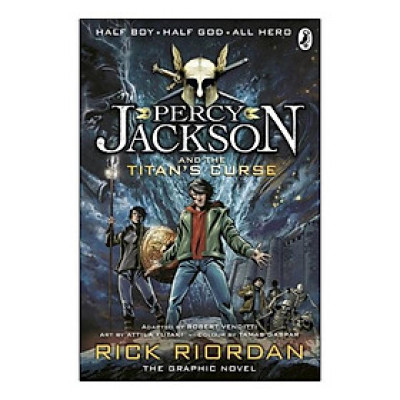 Percy Jackson and the Titan's Curse: The Graphic Novel (Book 3)
Percy Jackson and the Titan's Curse: The Graphic Novel (Book 3) 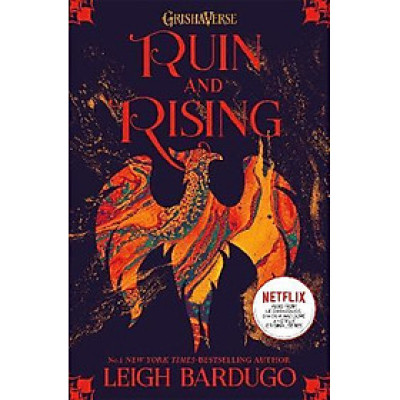 The Shadow and Bone: Ruin and Rising : Book 3
The Shadow and Bone: Ruin and Rising : Book 3  AHAMOVE_IOS
AHAMOVE_IOS  Ví Đứng Nam Mini Nhỏ Gọn, Da Bò SMALL PEBBLE 2 Mềm Mại - Bền Bỉ, Size Tiểu, Chống Xước - Chống Nhăn Tốt, Thiết Kế Đơn Giản, Dáng Đứng - Gập 2, 2 Ngăn Lớn Đựng Tiền Và 9 Ngăn Nhỏ Để Thẻ ATM, CCCD, Thẻ GPLX - Hàng Chính Hãng SAIGIO
Ví Đứng Nam Mini Nhỏ Gọn, Da Bò SMALL PEBBLE 2 Mềm Mại - Bền Bỉ, Size Tiểu, Chống Xước - Chống Nhăn Tốt, Thiết Kế Đơn Giản, Dáng Đứng - Gập 2, 2 Ngăn Lớn Đựng Tiền Và 9 Ngăn Nhỏ Để Thẻ ATM, CCCD, Thẻ GPLX - Hàng Chính Hãng SAIGIO 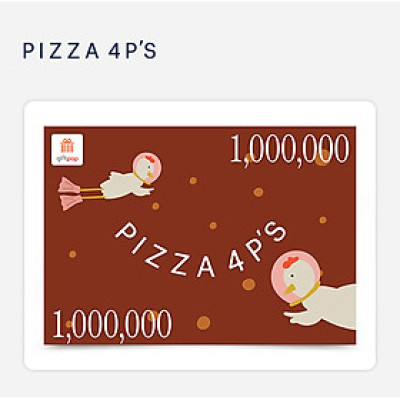 Giftpop - Phiếu Quà Tặng Pizza 4P's 1000K
Giftpop - Phiếu Quà Tặng Pizza 4P's 1000K  Giftpop - Phiếu Quà Tặng Le Monde Steak 1000K
Giftpop - Phiếu Quà Tặng Le Monde Steak 1000K  Giftpop - Phiếu Quà tặng Yakimono 1000K
Giftpop - Phiếu Quà tặng Yakimono 1000K  Giftpop - Phiếu Quà Tặng Hoa Yêu Thương 1000K
Giftpop - Phiếu Quà Tặng Hoa Yêu Thương 1000K  Giftpop - Phiếu Quà Tặng Gyu-Kaku 1000K
Giftpop - Phiếu Quà Tặng Gyu-Kaku 1000K  Giftpop - Phiếu Quà Tặng Potico 1000K
Giftpop - Phiếu Quà Tặng Potico 1000K  Giftpop - Phiếu Quà Tặng Butoomac 1000K
Giftpop - Phiếu Quà Tặng Butoomac 1000K  Giftpop - Phiếu Quà Tặng Don Chicken 1000K
Giftpop - Phiếu Quà Tặng Don Chicken 1000K  Giftpop - Phiếu Quà Tặng Miyen Japanese Fusion Cuisine 1000K
Giftpop - Phiếu Quà Tặng Miyen Japanese Fusion Cuisine 1000K ![[Giftpop] Phiếu Quà Tặng Baoz Group 1000K](/datafiles/2025-18/thumbs/7a285ce1bdab13d5afa6430ab9d5a0a1.jpg) [Giftpop] Phiếu Quà Tặng Baoz Group 1000K
[Giftpop] Phiếu Quà Tặng Baoz Group 1000K  Giftpop - Phiếu Quà Tặng A MÀ KITCHEN 1000K
Giftpop - Phiếu Quà Tặng A MÀ KITCHEN 1000K  Giftpop - Phiếu quà tặng Crispy Donuts 1000K
Giftpop - Phiếu quà tặng Crispy Donuts 1000K 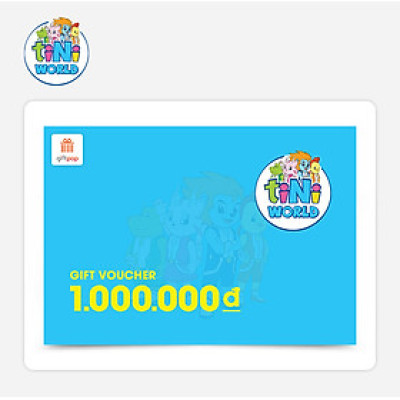 Giftpop - Phiếu Quà Tặng tiNiWorld 1000K
Giftpop - Phiếu Quà Tặng tiNiWorld 1000K  Giftpop - Phiếu Quà Tặng Bornga 1000K
Giftpop - Phiếu Quà Tặng Bornga 1000K  Giftpop - Phiếu Quà Tặng Otoké Chicken 1000K
Giftpop - Phiếu Quà Tặng Otoké Chicken 1000K  Giftpop - Phiếu Quà Tặng TOUS les JOURS 1000K
Giftpop - Phiếu Quà Tặng TOUS les JOURS 1000K  Giftpop - Phiếu quà tặng Ssamjang 1000k
Giftpop - Phiếu quà tặng Ssamjang 1000k  Giftpop - Phiếu Quà Tặng Lẩu Đài Loan Băng Chuyền Shang Chi 1000K
Giftpop - Phiếu Quà Tặng Lẩu Đài Loan Băng Chuyền Shang Chi 1000K  Giftpop - Phiếu quà tặng Spicy Box 1000K
Giftpop - Phiếu quà tặng Spicy Box 1000K